Whether you love them as cookies or for a pie topping, meringue is one of the most well-loved desserts. Making meringue yourself requires baking it at the right temperature. In this post, we will dive into this topic head-on as we talk about making meringue and the baking temperature it needs.
There are many meringue recipes that are available and they all use different temperatures when making meringue. However, baking meringues play around temperatures of about 200° to 350° F, depending on the kind of meringue you are making.
For food safety purposes, it is important to bake meringues at a minimum temperature of at least 160°F because it uses raw eggs.
Making meringues uses very few ingredients, but it does take some practice and skill to make them perfect just the way we enjoyed them as kids. We will see how to make meringues in this post, so keep reading as we share with you tips and tricks, as well as special ways to enjoy meringue.
At What Temperature To Bake Meringue?
You may have had these special treats as a child—crisp, sweet, airy cookies that melt as soon as you bite into them. These are meringue cookies, sweet desserts made of simply egg whites and sugar (among other things), and whipped to perfection before baking.
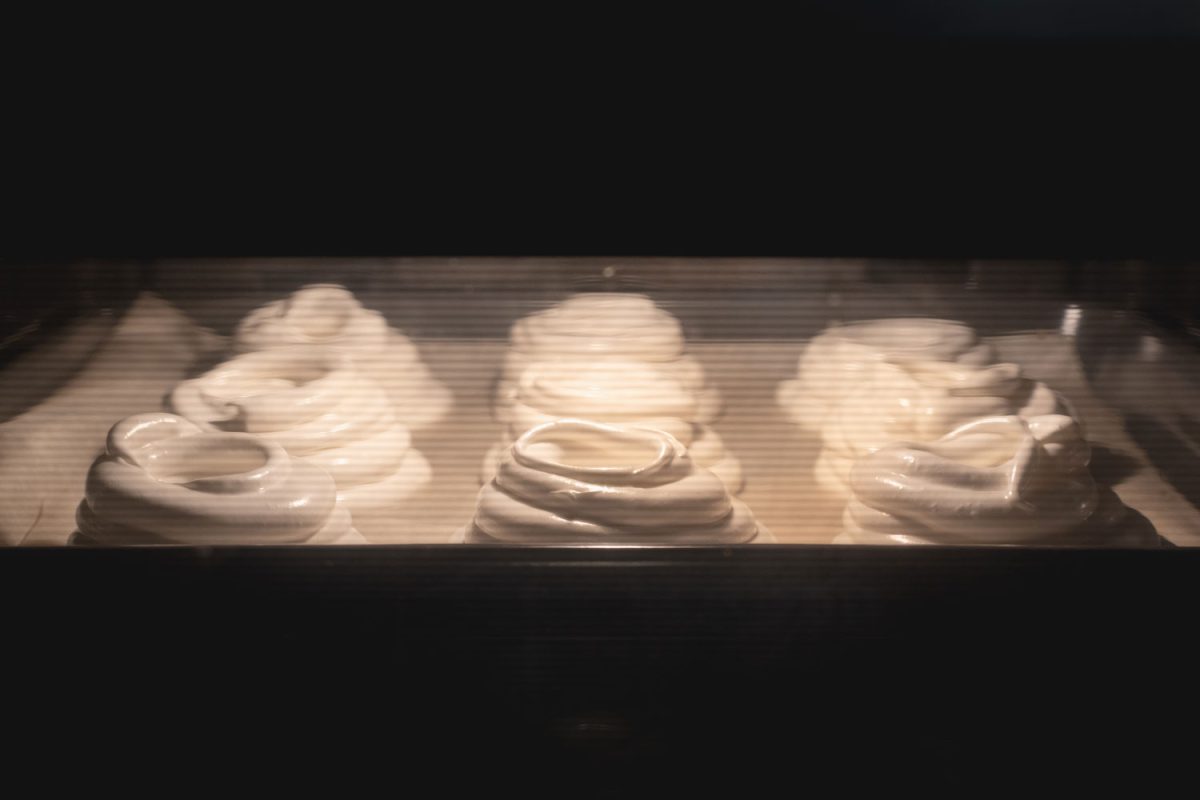
Meringues can be enjoyed as cookies, but they are also used in other desserts like pies, cakes, and many more.
Because of its simplicity, a lot of people have tried making meringue for their own desserts. All you need to make great meringue is a mixer. You can either choose between a sturdy (and really convenient) stand mixer, the affordable hand mixer, or the muscle-powered whisk.
Check out this stand mixer on Amazon.
When baking meringues, it is important to note the temperature at which you will be baking them. Meringues are delicate, so they need to be baked at a gentle temperature to prevent it from burning.
Different recipes call for different baking temperatures. However, meringue recipes can be baked at around 200° to 350° F, depending on what you're making.
There are different kinds of meringues such as pie toppings, cookies, or pavlovas. These will all require different baking temperatures, depending on the type of meringue dessert you are making.
What temperature to bake meringue cookies
Meringue cookies are usually baked at a gentle temperature of about 225°F.
This is because you will need to bake the meringues for about an hour and leave the cookies inside the oven to cool for an additional 1 or 2 hours. The residual heat in the oven will help dry out the cookies even further, making them crispier and airier.
What temperature to bake meringue topping
For pie or cake toppings, meringue is usually baked at 350° F, for about 20-25 minutes.
This allows the meringue to set and brown slightly on the top, but it won't be as dry as the cookies. This type of meringue is great for Baked Alaska, but you can simply brown the meringue using a blowtorch.
What temperature to bake pavlova
A pavlova is a dessert that originated in either Australia or New Zealand, and it is made similarly to a meringue.
It is baked at an initial temperature of 350°F to harden and brown the outside quickly, before being lowered to 200°F to allow it to cook through. This creates a crisp exterior and a soft, pillowy texture inside this dessert.
Internal temperature for meringue
Regardless of whatever kind of meringue you are making, the FDA suggests that it should be cooked until it reaches an internal temperature of at least 160°F to prevent food-borne illnesses.
This is important for meringue since it is mostly comprised of raw egg whites.
How Much Sugar and Eggwhites Do I Need For Meringue?
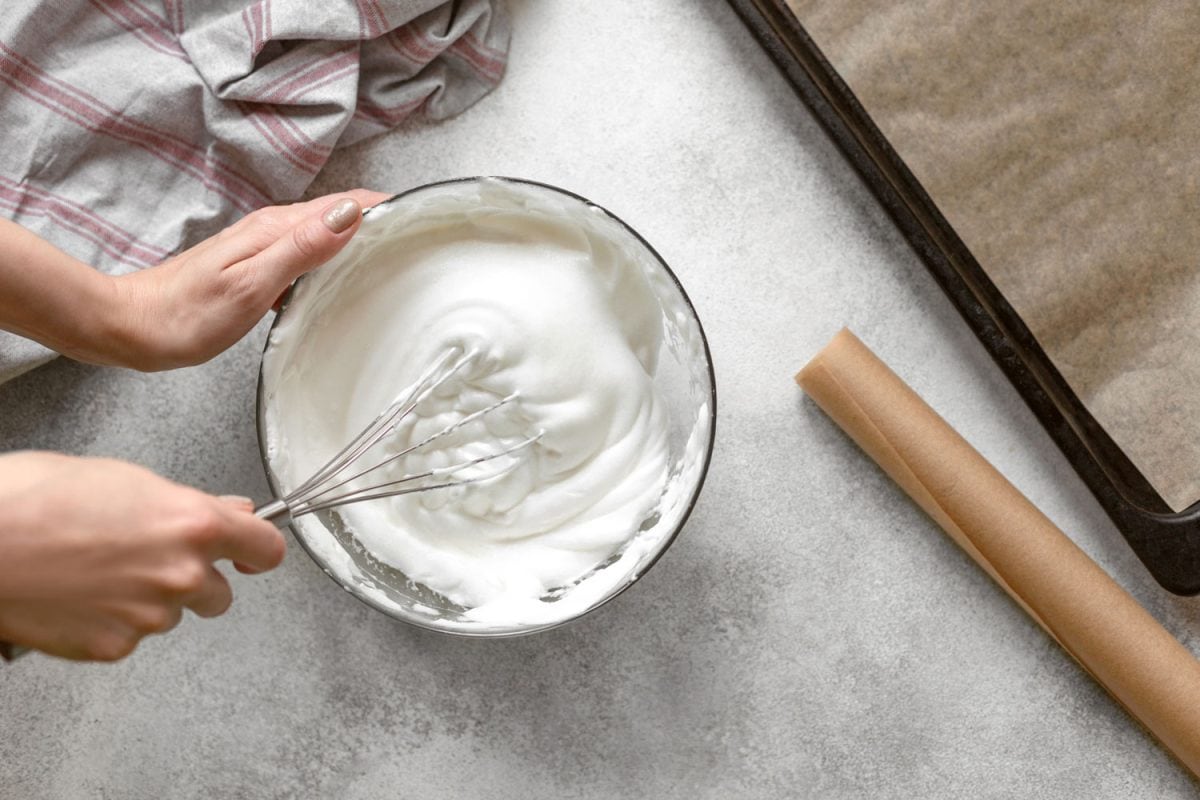
Earlier, we talked about the different kinds of popular meringue desserts that a lot of people might be familiar with. Typically, you can separate them into two types: soft and hard meringues.
Soft meringues are commonly used in pies and cakes, while hard meringues can stand on their own as cookies or pavlovas.
There is a sugar-to-egg ratio that many bakers follow to make the perfect meringue. You can use regular granulated sugar to make your meringues, but many cooks swear by superfine sugar because it dissolves easier when whipped with egg whites.
For soft meringues, you only need to use about 2 tablespoons of sugar for every egg white you will use.
On the other hand, hard meringues need more stability, so you will need about 1/4 cup of sugar for every egg white used, and the addition of an acid to help the egg whites form stiff peaks.
How Do I Know If Meringue Is Done Baking?
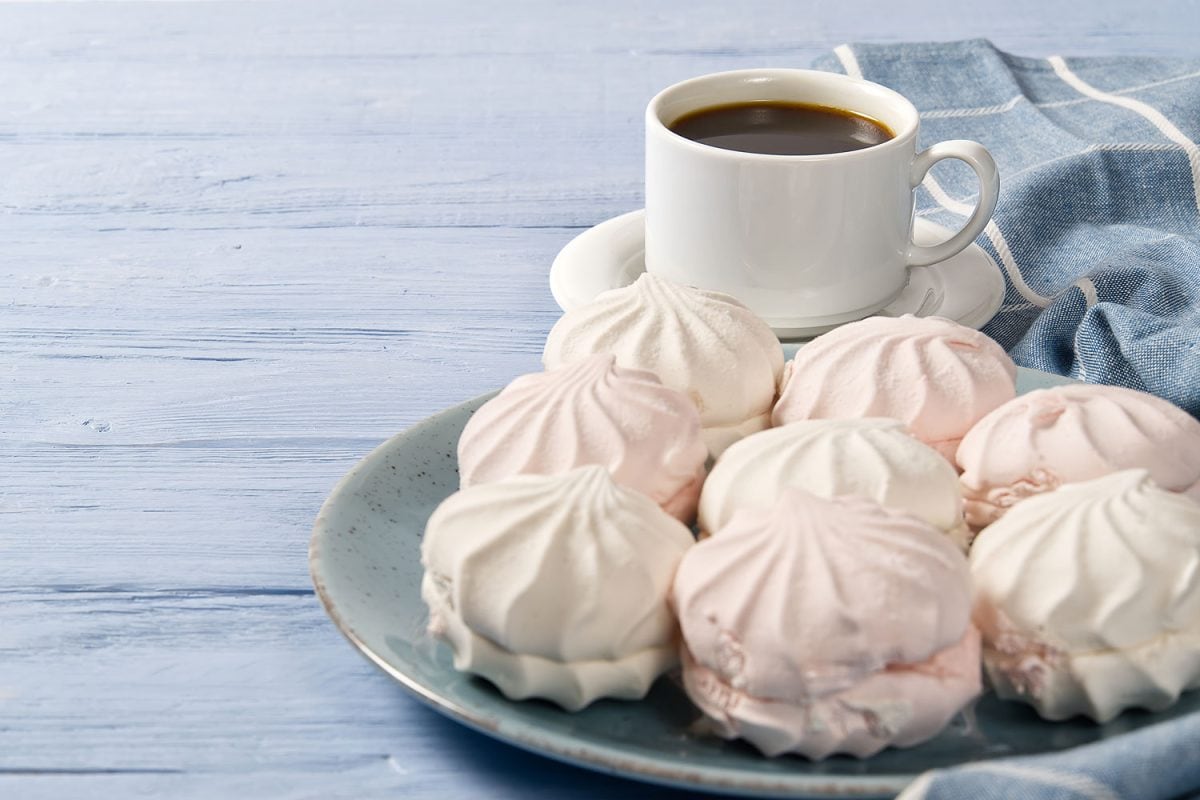
Knowing when your meringue is done baking is quite easy. Soft meringues used as pie or cake toppings get cooked easily since you will only need to heat up the raw egg whites to a safe temperature.
You will also need brown the tops of the meringue, and the 20-25 minutes it takes for the pie or cake in a high-temperature oven will do the trick.
For hard meringues like cookies or pavlova, there is a different method to check for doneness Since these baked goods need to be dry, you should be able to easily lift them from the baking sheet.
The meringue will feel very light and completely dry. If it still sticks, leave it in the hot oven (with the flame off!) to continue drying out.
Tips To Making Successful Meringues
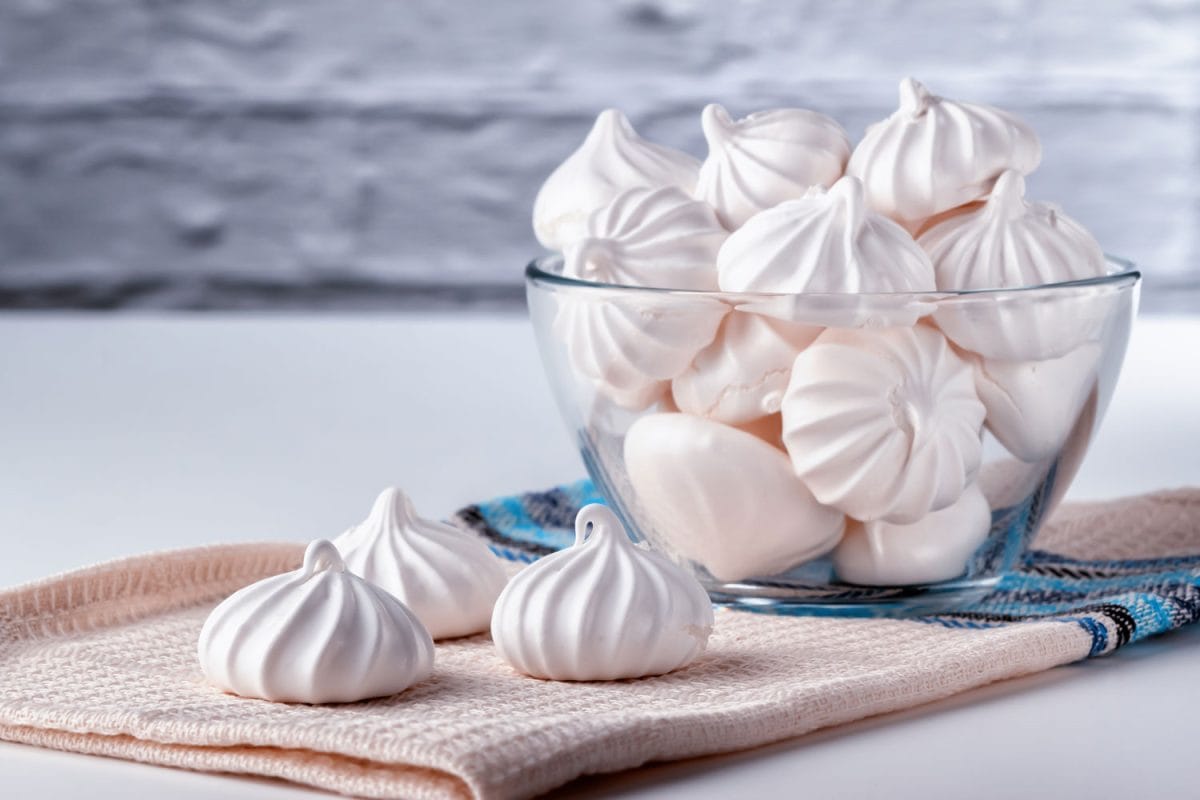
Making a meringue for the first time can be a little daunting. With this in mind, here are some tips and tricks that you can try to make those fluffy clouds of deliciousness perfectly.
Eggwhites 101
When making meringues, the number one rule that you should follow is to use fresh eggs. Old eggs tend to collapse when they are mixed in with other ingredients and they do not rise well when they are baked.
You should also make sure that your egg whites do not have a trace of yolk and eggshell before making your meringue.
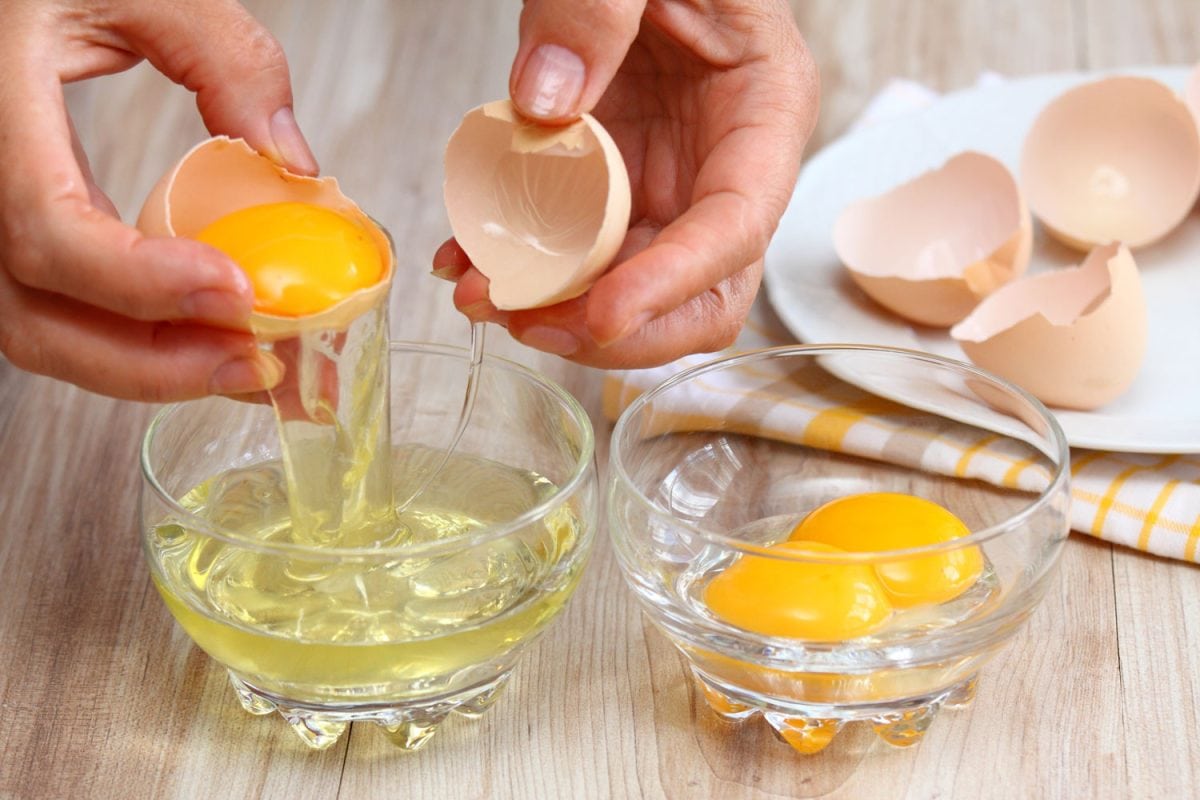
There shouldn't be a single spot of egg yolk in your egg whites because yolks contain fat, and this will stop your mixture from becoming fluffy (which is important for meringues). Eggshells, on the other hand, can make your meringue crispy... in a bad way.
To make it easier for you to separate egg whites, make sure to start with cold eggs. Start by separating egg whites using eggs straight out of the refrigerator.
When you've collected all the egg whites you will need for your recipe, let it come to room temperature before you start whisking them.
Use The Right Bowl
A lot of people don't think too much about this, but using the right bowl can definitely make your meringue baking a lot easier. Do not use plastic bowls to make your meringues because these bowls tend to retain a film of fat or oil that can affect your egg whites when beaten.
For perfect meringues, use a glass or metal bowl to whip up your egg whites. These bowls are perfect to use because they are easy to clean. This means you can easily remove any fat or oil simply by using hot water and a little dish soap.
Get this glass mixing bowl on Amazon.
Don't miss out on the acid
Make your life easier by using acid to give your egg whites the stability it needs to make meringue. You can use cream of tartar, lemon juice, or vinegar to add to your egg whites during the beginning of your whipping to prevent the mixture from collapsing.
Using acid in your meringues will ensure that stiff peaks will form and you'll have perfectly whipped meringues in no time.
Check out cream of tartar on Amazon.
Don't bake on humid days
A meringue's greatest enemy is moisture, and we tend to have a lot of that on humid days.
Meringues are very sensitive to humidity. The excess moisture in the air can seep into the dessert and make them soft even after baking.
Try to do your baking on dry days to make sure that your meringues will be completely crisp and dry.
Final Thoughts
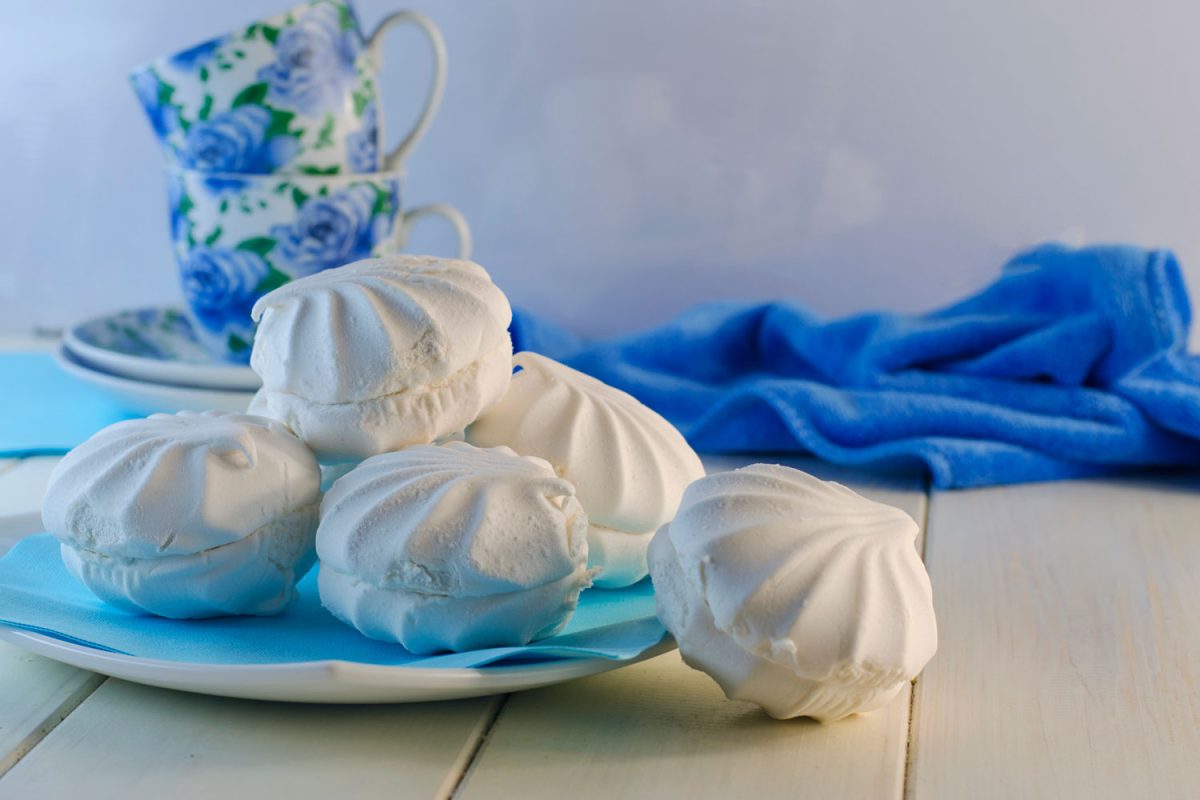
Meringues are delightful desserts that are great for so many things. It's classic and versatile, finding its way into a number of recipes. Because of this, it is a great addition to your culinary repertoire.
Just make sure to follow our tried and tested tips and tricks for fool-proof meringue. Once you have it mastered, everyone is going to be looking forward to these crisp, sugary little clouds.
Would you like to do more egg desserts for your family? We have a couple of articles that might be of interest:
How To Store Meringue Overnight
Should You Weigh Eggs When Baking?

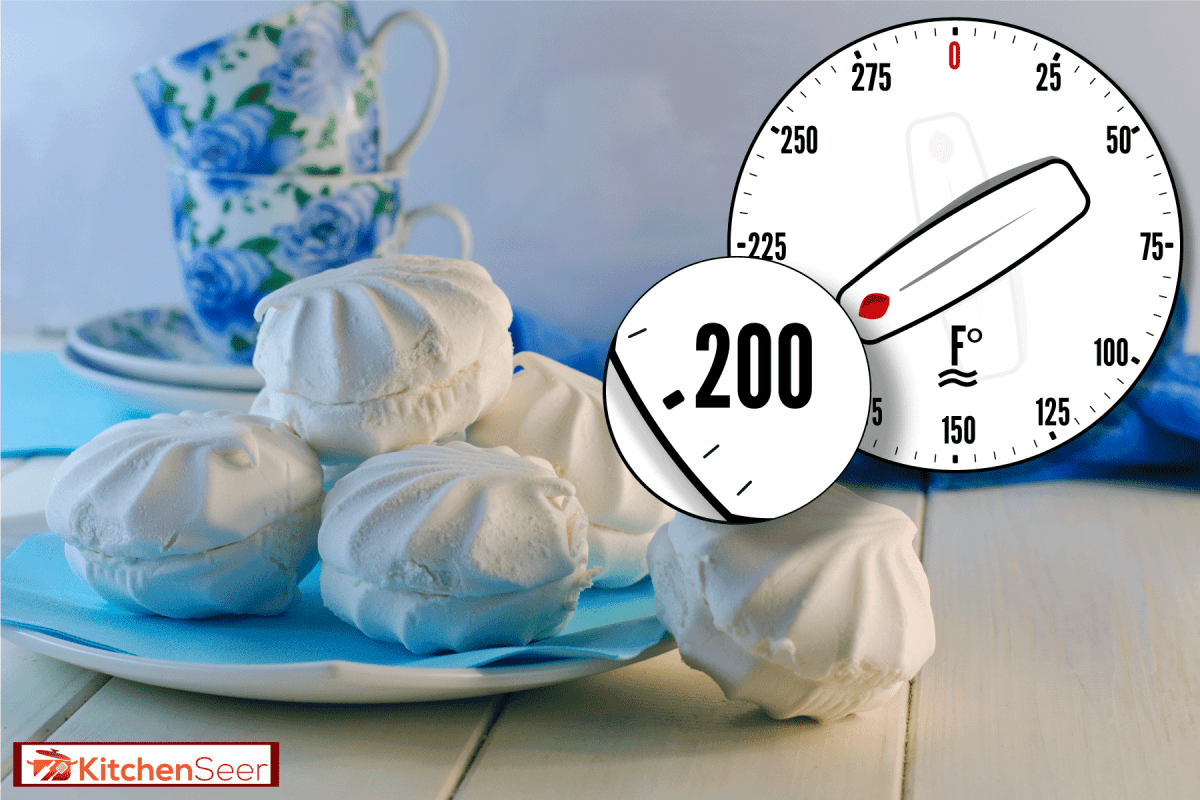



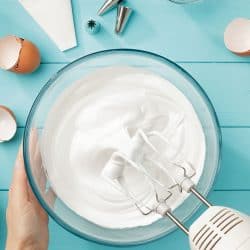
![Close up of hands pouring egg into the bowl of mixer while preparing chocolate cake with poached pears for the holidays, Can You Beat Eggs In A Food Processor? [Here's How To]](https://kitchenseer.com/wp-content/uploads/2021/08/Close-up-of-hands-pouring-egg-into-the-bowl-of-mixer-while-preparing-chocolate-cake-with-poached-pears-for-the-holidays-250x250.jpg)
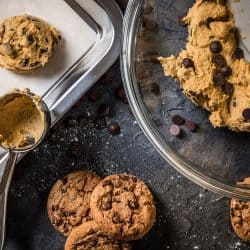

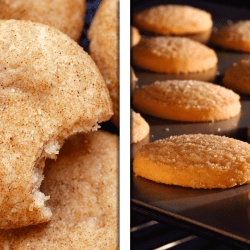
![Homemade pie with whipped cream and caramel sauce. Close up, Why Is My Butterscotch Pie Runny [& Possible Fixes!]](https://kitchenseer.com/wp-content/uploads/2022/12/Homemade-pie-with-whipped-cream-and-caramel-sauce.-Close-up.-250x250.jpg)